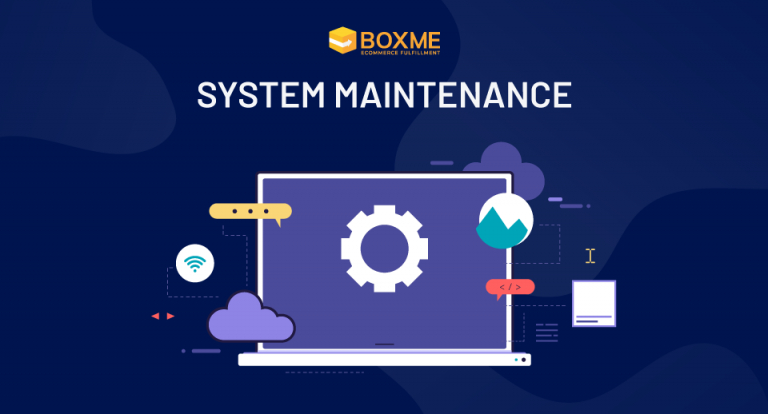[vc_row][vc_column][vc_column_text]Avoiding delivery delays when participating in the e-commerce playground is an important issue to tack on. Ever since the advent of e-commerce, the ease of doing business has increased tremendously. You do not have to possess a physical store in order to establish yourself as a businessperson anymore – your e-commerce website serves as your store. Additionally, consumers no longer need to visit brick and mortar shops to purchase their preferred products. They can do it from the comfort of their living rooms and have the products delivered right to their doorsteps.
Starting an e-commerce venture has its fair share of challenges; always be ready to provide delivery services to customers is one of the glaring ones. And problems in this aspect come mainly in the form of delivery times. Can online businesses handle the tight delivery schedule that customers want – at all times? Success in answering the question “How to” can make a big difference in improving customer satisfaction and eventually pushing the growth of your business.

(Source: prisync)
What causes delivery delays?
To avoid them, first you should find out what causes them. Businesses often face difficulties in delivering goods to their customers in a timely manner. There are, of course, occasions where the reason for a delayed delivery partly stems from a customer’s mistake. However, most of the time, an e-commerce retailer is to blame for delays. Whatever the case, below are some of the most common causes:
- Logistical Problems – Dealing with logistics can be a nightmare for SMEs. In fact, logistical problems top the list of reasons for delivery delays. The inability to handle high product demand and numerous orders, limited partnership with reliable delivery agents, etc. all may prove to be an Achilles heel.
- Bad Weather – Mother Nature may easily hinder an otherwise quick delivery. Bad weather situations such as heavy rains or thunderstorms can creep their ways into causing delivery delays. This is definitely beyond the delivery agent’s capability, but should not be an acceptable excuse anyway.
- Documentation Mistakes – These happen more often than you know it. Common mistakes include misspelled addresses, incorrect order forms, and insufficient information. These mistakes may spring from either the clients or the retailer. Sometimes the retailer fails to document orders properly, especially when handling numerous orders simultaneously. When a delivery company is supplied with insufficient information, chances are the package will not reach the customer at all, let alone on time.
- System Failure – E-commerce businesses often operate on a 24/7 basis. So if your business relies on a bad hosting company, chances are at some point your website may experience technical problems. You will not be able to respond to orders if you are experiencing system failures, hence the delays in delivery.
Impact on your business
The causes of delivery delays are varied, and not limited to the aforementioned reasons. Delivery delays can greatly – and negatively – affect your e-commerce business. Businesses that do not act promptly to mitigate delivery problems will more often than not experience a plummet in sales. Most of the time customers are sympathetic and understanding; they know that human error and natural factors can lead to delivery problems. However, if this continues on like a common practice, then be ready to kiss their trust goodbye. Remember, the reputation of your business is always at stake. It is a must that you deal with delay issues, if there are any, at once.
“Redemption” delivery chance is likewise directly connected to customer retention. New customers who experienced a delay when ordering for the first time would hardly want to order again from the same company. The same applies even more for long-time customers, who will unlikely tolerate your unpunctual delivery, and will take a lengthy amount of time to consider before ordering again. Just imagine how big of a hit that is on your profits, as well as on your reputation, if you don’t get it right from the first try. This seemingly small issue and the way each business choose to deal with it explain why some e-commerce businesses are so successful, while others are lagging behind in terms of growth. If you cannot, or simply do not have the resource to manage prompt deliveries, it is advisable that you leverage the services of a fulfillment company.

(Souce: route4me)
How to avoid delivery delays
Multiple strategies can be used to avoid delivery delays. These include:
- Enlist a Fulfillment Service
Enlisting the services of a fulfillment company is the most viable way of avoiding delivery delays. A fulfillment service is a third-party company that handles warehousing, packaging and delivery of orders on behalf of your e-commerce business. Hiring the service of such a company yields numerous benefits: Lower operating costs & shipping fees, improved business focus, improved scalability and above all, punctual delivery. By hiring a fulfillment service, you do not have to purchase automation software neither do you need to worry about delivering goods during public holidays.
- Set a Minimum/Maximum
Set a minimum delivery time span so as to tend to your orders incisively. That span should be realistic in the sense that you will not conversely put yourself under pressure to deliver. On the other hand, it should not be discouraging to the customers. When customers place orders, they do so obviously with the hope to receive their products as soon as possible
- Update Your Inventory
Update your inventory regularly to replace products that have already been delivered. It would be so frustrating for a customer to order a product only to find out that it does not exist in your inventory.
- Prepare Your Warehouse
As your business grows, you will receive more orders. Always prepare your warehouse in such a way that it is easy to dispatch products to their respective destinations. It is obvious that some of your products are more sought-after than the others. So start by arranging the most popular products first, followed by the less popular ones.
- Prepare for the holidays
Businesses often witness increased orders and sales during the holidays. Unfortunately, most couriers do not work during public holidays. Therefore, you should make alternative arrangements to deliver orders in good time. To avoid delivery delays, always dispatch your orders before the public holidays commence.
[vc_separator color=”orange” align=”align_left” style=”dashed”][vc_column_text]BoxMe is the premier cross-border e-Commerce fulfillment network in South East Asia, enabling world-wide merchants to sell online into this region without needing to establish local presence. We are able to deliver our services by aggregating and operating an one-stop value chain of logistic professions including: International shipping, customs clearance, warehousing, connection to local marketplaces, pick and pack, last mile delivery, local payment collection and oversea remittance.
If you have any question about Boxme Asia or how we can support your business, please contact us directly by referring to our hotline. We are glad to be of service![/vc_column_text][/vc_column][/vc_row][vc_row][/vc_row][vc_column][/vc_column][vc_row][vc_column][vc_raw_js]JTNDJTIxLS1IdWJTcG90JTIwQ2FsbC10by1BY3Rpb24lMjBDb2RlJTIwLS0lM0UlM0NzcGFuJTIwY2xhc3MlM0QlMjJocy1jdGEtd3JhcHBlciUyMiUyMGlkJTNEJTIyaHMtY3RhLXdyYXBwZXItYWI5ZjU3MjEtZjZkNC00YzhmLTk5YWUtOGMxNWFlZGNlZmEwJTIyJTNFJTNDc3BhbiUyMGNsYXNzJTNEJTIyaHMtY3RhLW5vZGUlMjBocy1jdGEtYWI5ZjU3MjEtZjZkNC00YzhmLTk5YWUtOGMxNWFlZGNlZmEwJTIyJTIwaWQlM0QlMjJocy1jdGEtYWI5ZjU3MjEtZjZkNC00YzhmLTk5YWUtOGMxNWFlZGNlZmEwJTIyJTNFJTNDJTIxLS0lNUJpZiUyMGx0ZSUyMElFJTIwOCU1RCUzRSUzQ2RpdiUyMGlkJTNEJTIyaHMtY3RhLWllLWVsZW1lbnQlMjIlM0UlM0MlMkZkaXYlM0UlM0MlMjElNUJlbmRpZiU1RC0tJTNFJTNDYSUyMGhyZWYlM0QlMjJodHRwcyUzQSUyRiUyRmN0YS1yZWRpcmVjdC5odWJzcG90LmNvbSUyRmN0YSUyRnJlZGlyZWN0JTJGMjE0MTUyOCUyRmFiOWY1NzIxLWY2ZDQtNGM4Zi05OWFlLThjMTVhZWRjZWZhMCUyMiUyMCUzRSUzQ2ltZyUyMGNsYXNzJTNEJTIyaHMtY3RhLWltZyUyMiUyMGlkJTNEJTIyaHMtY3RhLWltZy1hYjlmNTcyMS1mNmQ0LTRjOGYtOTlhZS04YzE1YWVkY2VmYTAlMjIlMjBzdHlsZSUzRCUyMmJvcmRlci13aWR0aCUzQTBweCUzQiUyMiUyMHNyYyUzRCUyMmh0dHBzJTNBJTJGJTJGbm8tY2FjaGUuaHVic3BvdC5jb20lMkZjdGElMkZkZWZhdWx0JTJGMjE0MTUyOCUyRmFiOWY1NzIxLWY2ZDQtNGM4Zi05OWFlLThjMTVhZWRjZWZhMC5wbmclMjIlMjAlMjBhbHQlM0QlMjJMZWFybiUyME1vcmUlMjBBYm91dCUyME91ciUyMFNvbHV0aW9uJTIyJTJGJTNFJTNDJTJGYSUzRSUzQyUyRnNwYW4lM0UlM0NzY3JpcHQlMjBjaGFyc2V0JTNEJTIydXRmLTglMjIlMjBzcmMlM0QlMjJodHRwcyUzQSUyRiUyRmpzLmhzY3RhLm5ldCUyRmN0YSUyRmN1cnJlbnQuanMlMjIlM0UlM0MlMkZzY3JpcHQlM0UlM0NzY3JpcHQlMjB0eXBlJTNEJTIydGV4dCUyRmphdmFzY3JpcHQlMjIlM0UlMjBoYnNwdC5jdGEubG9hZCUyODIxNDE1MjglMkMlMjAlMjdhYjlmNTcyMS1mNmQ0LTRjOGYtOTlhZS04YzE1YWVkY2VmYTAlMjclMkMlMjAlN0IlN0QlMjklM0IlMjAlM0MlMkZzY3JpcHQlM0UlM0MlMkZzcGFuJTNFJTNDJTIxLS0lMjBlbmQlMjBIdWJTcG90JTIwQ2FsbC10by1BY3Rpb24lMjBDb2RlJTIwLS0lM0U=[/vc_raw_js][/vc_column][/vc_row]










